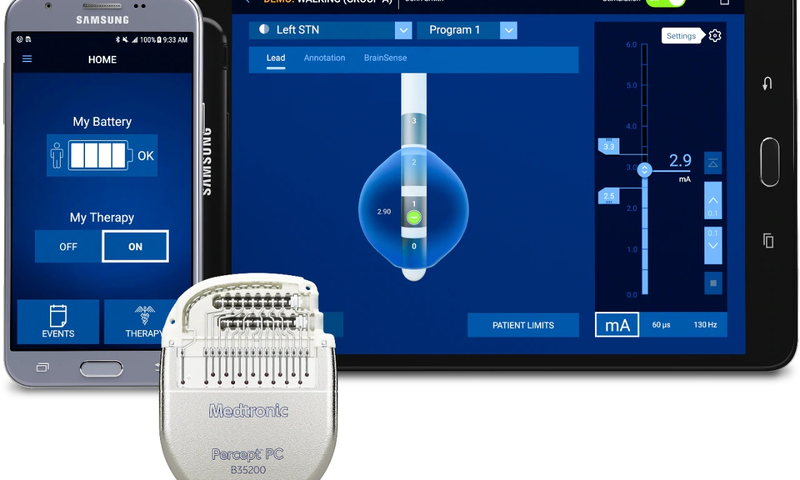Medtronic issued an urgent field safety notice to healthcare providers in Europe this week after identifying an issue in which its Percept PC deep brain stimulation implant may stop working and need to be removed after an implanted patient undergoes a cardioversion.
The Percept PC system is a pacemakerlike device that’s implanted under the skin on a patient’s torso, with leads connecting to regions of the brain that have been linked to specific neurological disorders. The device differs from other deep brain stimulation systems in that alongside delivering neurostimulation therapy to treat conditions like Parkinson’s disease, epilepsy, obsessive-compulsive disorder and more, it also continuously captures and records brain signals.
Healthcare providers can then use the collected data to plot out how each patient’s brain reacts to stimulation or medication and how symptoms and side effects manifest in their brain activity, in turn helping them build more effective, individualized treatment plans.
The Percept PC system received CE mark clearance in Europe and began its rollout there in early 2020, followed soon after by FDA approval in June of that year.
Since the European rollout began, however, Medtronic has so far received four reports of situations in which the devices became unresponsive and nonfunctional after a cardioversion, which sends electric shocks to the heart to restore a fast or irregular heartbeat to a normal rhythm. According to the safety notice, if the device stops working, not only are symptoms likely to return, but they may do so with greater intensity than before, resulting in rare cases in a medical emergency.
The patients in all four reported cases have had to undergo or schedule the removal of their Percept PC devices because of the electrical damage, Medtronic said.
The company is in the process of adding information about the risks associated with cardioversion when using the device to its manual for prescribers. It’s also looking into possible design changes to the neurostimulation system that might mitigate the effects of the cardiac procedure.
In the meantime, healthcare providers and their patients with conditions that may someday require a cardioversion and who are considering the implant are advised to be aware of the possible risks of combining the two and to weigh those risks against the benefits before implantation. Those already implanted with the device, meanwhile, should be aware that it may need to be surgically replaced if they’re due for a cardioversion procedure.
In the almost two years since Percept PC first launched, it has been at the root of two other safety alerts, both Class 2 recalls related to the software used by clinicians and patients to program the devices.
The first, initiated in November 2020 and spanning 12 devices in seven states, concerned the A620 patient programming application, which was found to have a software anomaly that prevented it from connecting to Percept PC devices. Just a few months later, in March of this year, Medtronic identified a pair of software issues in the A610 clinician programming application, which had then been downloaded more than 5,300 times, prompting the second recall: one in which device settings wouldn’t properly copy over from a previous neurostimulation device to the Percept PC system and another that could cause the software to crash if the implant’s data log is full.

